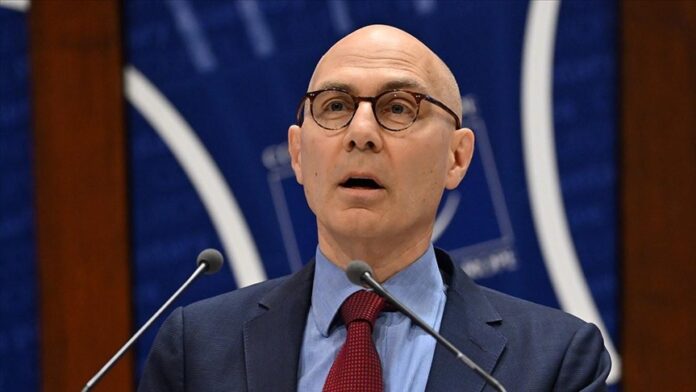UNITED NATIONS, Feb 25 (APP): The UN human rights chief on Tuesday called for a moratorium and abolition of the death penalty, warning about a “substantial increase” in global executions.
“While a number of countries argue that it lies within their national sovereignty, from my perspective, it is incompatible with human dignity and the right to life,” High Commissioner Volker Turk told the UN Human Rights Council, during a discussion about the contribution of judiciaries to advancing human rights over the issue.
The punishment had “no place” in the 21st century, Turk said, noting that “the top executing countries over recent years” include Iran, Saudi Arabia, Somalia, and the United States.
Latest UN data indicates that in 2023, 1,153 executions took place in 16 countries, representing a 31 per cent increase from 2022 and the highest number in the past eight years.
Although drug-related offences do not meet the “most serious crimes” justification for executions under international human rights law, they account for more than 40 per cent of death penalty executions – the highest number since 2016.
In more positive developments and despite a global rise in executions, a growing number of countries are abolishing the practice – spurred by the Global South.
Today, 113 countries have scrapped the death penalty completely. This includes Zimbabwe – where President Emmerson Mnangagwa approved a law ending executions at the end of 2024 – along with 26 other countries in Africa.
Key to abolition are judicial reform and discretion in commuting executions to lesser punishments, the High Commissioner insisted. Malawi and Malaysia have implemented such reforms, leading to fewer death sentences, Turk said, as he called for greater efforts globally to ensure fair trials and avoid wrongful convictions.
He urged nations to move towards the complete abolition of the death penalty, advocate for moratoriums, and ensure that the death penalty is only used for the most serious crimes.
Also addressing the Council, Zimbabwe Attorney General Virginia Mabiza said that the death penalty had been introduced by colonial rulers in the 18th century, enduring beyond the country’s independence in 1980.
She said that more than 56 per cent of the population wanted the death penalty to remain in the statute books when asked in 1999, while between 1980 and 2005, 105 convicted offenders were executed.
“Since then, no other executions have been carried out in Zimbabwe, and this can be attributed to policy decisions coupled with judicial discretion against capital punishment,” the Attorney General told the 47-member Council.

